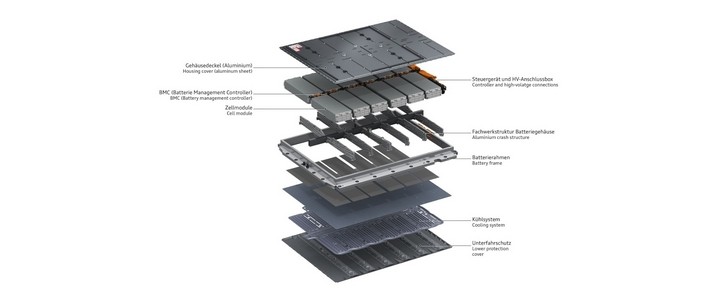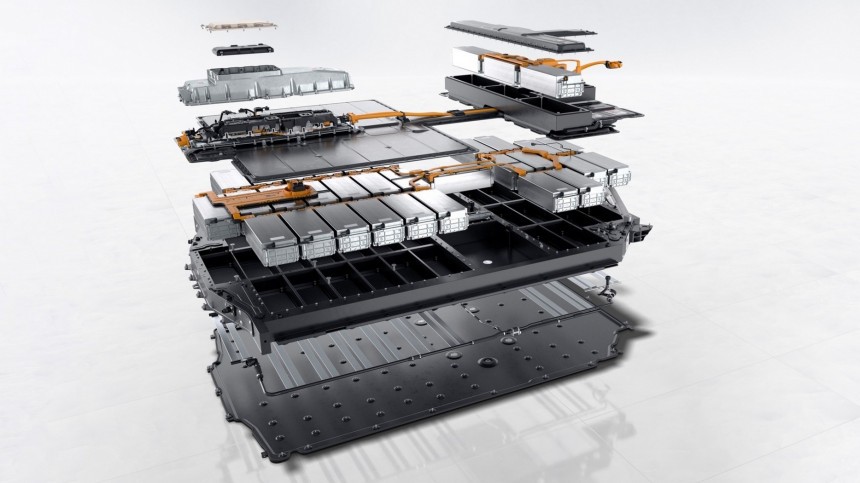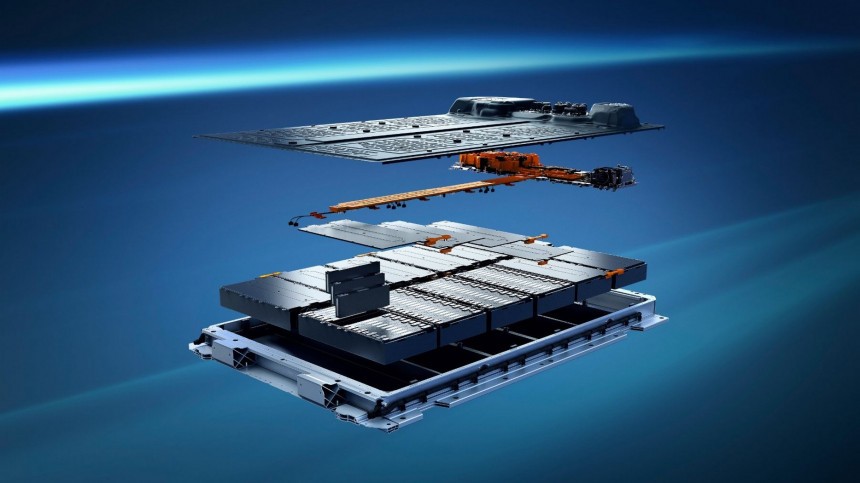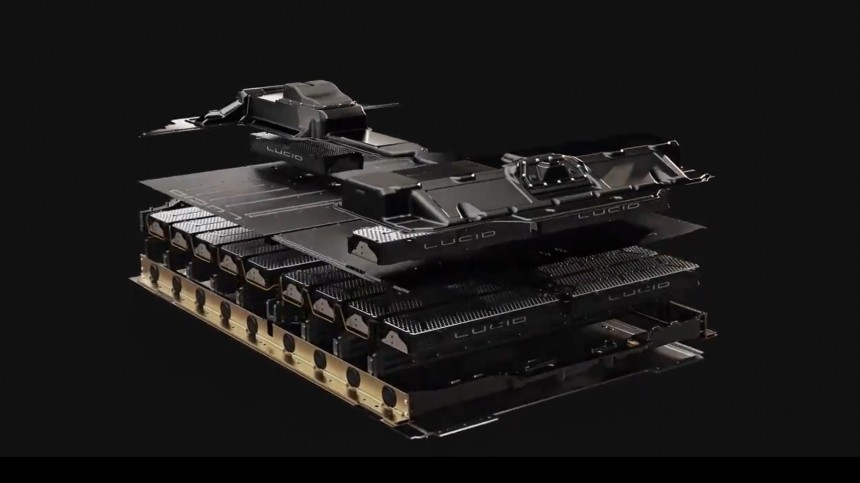The most interesting things about a recent Rich Rebuilds video were its main topic and a sideline that could stand on its own. When Donald Bone received a $16,000 estimate from Tesla to replace a battery pack due to a broken coolant nipple, he considered paying that bill before solving the issue for $700 with the Electrified Garage. After he told Tesla he might buy a new one and keep the old one, the company said it would not give him the component back. Well, Volkswagen also seems to think it will keep old battery packs to complete what it calls a closed-loop approach.
The idea is simple: battery packs are created to power cars. When they fall below a given capacity percentage (around 70%), they are put to work as stationary energy storage. As their lifespan in that task also ends, they are recycled to start as automotive battery pack all over again. In the ideal world that Volkswagen seems to have imagined when it presented the strategy, that flow would happen naturally. The reality is that is determining who actually owns the used battery pack will depend on many aspects.
If battery packs were solely replaced under warranty, it would be a no-brainer that the respective carmakers involved would put a new one in the EV in exchange for the defective or damaged component. No client would dispute that as long as they could get to drive as far – or further – as they used to do. Things get more complicated if the customers have to pay the bill.
Some automakers have dodged that bullet by selling EVs without the battery packs: using them requires a monthly fee. Renault used to do that with the ZOE but gave up on that strategy more recently. Nio still adopts it and calls its strategy as BaaS (battery as a service). That allows these companies to have full control of the battery packs: when they are no longer suitable, all it takes is replacing them for one that works.
To all companies that sell the cars and the battery packs (most of them), it may happen that some customers want to use old battery packs for storage in their homes. They may decide to dismantle them and sell modules or other components. Whatever their reason is, they have that right to do that in most countries. That means automakers willing to create a “closed-loop approach” will have to make letting them have these parts an attractive deal for customers.
Some manufacturers may decide to tackle that by putting a hefty price tag on their new battery packs – something many already do. Customers could then get a discount if they included the old one in the deal.
We have no idea if Tesla gave Bone any reason to keep the battery pack if he bought a new one. From what he told in the video, it seems the company just considered that to be a natural development of the deal. If that was the case and more companies follow that example, this approach will undoubtedly give the legal system a lot of work.
Automakers may eventually come up with more elaborate excuses to keep the battery packs: because it is a dangerous part, because people will not have an easy way to carry something that weighs half a ton, you name it. This is something we will watch as it unfolds.
What we know for sure is that EV buyers already realized that battery packs are a valuable asset – even when they are not delivering their best performance. That is why Chinese recycling companies are having issues with finding old battery packs: people are not giving them back. They are trying to make money with them.
Any company that imagines a closed-loop approach will be a natural step has to think again. The EV transition will have multiple peculiarities, and dealing with a decaying or dead battery pack will be one of the most crucial ones.
One could think it is too early for Volkswagen to disclose its plans to handle its closed-loop approach. However – and since it already said that’s the strategy it will follow – it would be nice to understand what it wants to do. It may take a decade or more for the first MEB battery packs to reach recycling plants in meaningful volumes, but we want to know what will happen when they do. We’ll ask Volkswagen about that.
For Tesla, some of these battery packs are already getting back – some of them just because of a broken coolant port nipple. Seeing that the EV manufacturer wants to keep them without giving its customers a reasonable explanation raises a red flag. We’d also ask the company about that if that was of any use: Tesla does not talk to the press.
If battery packs were solely replaced under warranty, it would be a no-brainer that the respective carmakers involved would put a new one in the EV in exchange for the defective or damaged component. No client would dispute that as long as they could get to drive as far – or further – as they used to do. Things get more complicated if the customers have to pay the bill.
Some automakers have dodged that bullet by selling EVs without the battery packs: using them requires a monthly fee. Renault used to do that with the ZOE but gave up on that strategy more recently. Nio still adopts it and calls its strategy as BaaS (battery as a service). That allows these companies to have full control of the battery packs: when they are no longer suitable, all it takes is replacing them for one that works.
Some manufacturers may decide to tackle that by putting a hefty price tag on their new battery packs – something many already do. Customers could then get a discount if they included the old one in the deal.
We have no idea if Tesla gave Bone any reason to keep the battery pack if he bought a new one. From what he told in the video, it seems the company just considered that to be a natural development of the deal. If that was the case and more companies follow that example, this approach will undoubtedly give the legal system a lot of work.
What we know for sure is that EV buyers already realized that battery packs are a valuable asset – even when they are not delivering their best performance. That is why Chinese recycling companies are having issues with finding old battery packs: people are not giving them back. They are trying to make money with them.
Any company that imagines a closed-loop approach will be a natural step has to think again. The EV transition will have multiple peculiarities, and dealing with a decaying or dead battery pack will be one of the most crucial ones.
For Tesla, some of these battery packs are already getting back – some of them just because of a broken coolant port nipple. Seeing that the EV manufacturer wants to keep them without giving its customers a reasonable explanation raises a red flag. We’d also ask the company about that if that was of any use: Tesla does not talk to the press.









